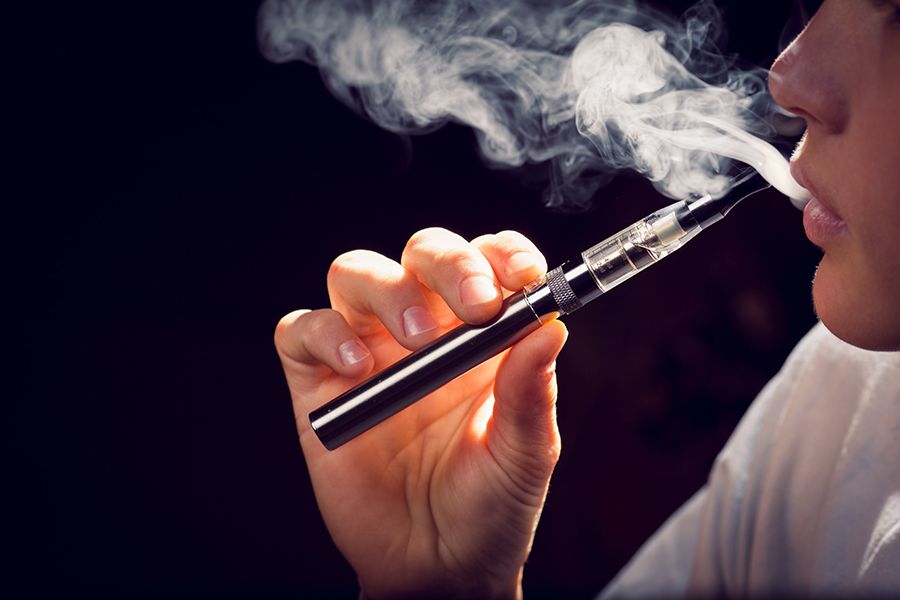Legally Purchased Vaping Products Are Also Linked to Lung Issues
Previously, unregulated vaping products seemed to be the problem.

Photo via Getty Images/6okean
Update, 12/9/19 3:30 p.m.: After this story was published on Friday, the Department of Public Health told the Boston Globe that “at least one” of the six patients who had reported only using vape products purchased from a legal dispensary had also consumed other vape products. In an email to Boston magazine, DPH spokesperson Ann Scales clarified that “only one” of the six reported purchasing product from “other sources,” but could not confirm whether the products were illicit or simply from out of state.
Previously:
As medical experts across the country continue to study the vaping-related lung illness that has landed over 2,000 people in the hospital nationwide, the state department of health has released updated data that reflect a new pattern: Six Massachusetts residents with “probable” cases of the illness reported using THC and THC + nicotine products purchased legally at Massachusetts dispensaries.
According to the U.S. Centers for Disease Control, a “probable” case of the disease is one in which doctors know that the patient was vaping when they became ill, but there still may be another cause contributing to the illness. A “confirmed” case, in contrast, is one in which all causes of lung symptoms outside of vaping have been definitively ruled out.
The state Department of Public Health has so far reported 90 probable and confirmed cases of vaping-related lung illness in Massachusetts, so these six patients make up only a small percentage of those suffering from the illness. This same data set also shows that 22 others used vaping products that were not purchased from a state dispensary. But this report is the first time state health officially have linked the illness with regulated cannabis vapes. In recent weeks, experts studying the vaping-related lung illness have been nearing the conclusion that additives in illegal cannabis vapes (like vitamin E acetate) were primarily to blame for the disease.
State and federal health officials maintain that the cause of the disease, which they have started calling “EVALI,” is still undetermined. The DPH is sticking with the stance that it’s best to avoid the use of all vaping products until more conclusive research comes out.
The new report doesn’t list details about which products were named in these six probable cases, nor does it list the local dispensaries where they were purchased, leaving consumers to wonder whether or not products they purchased have been implicated. The latest data does include a list of products that people who are ill have reported using, but the list (which you can view here) doesn’t distinguish which products were purchased legally vs. illicitly.
These new findings come less than a week before Governor Baker’s vaping ban is set to end. The ban, which has been in place since September 24, was originally slated to last four months. Last week, Baker announced that the ban would instead come to an early end on December 11. But legislation surrounding vapes and e-cigarettes has tightened since September, so consumers will have to get used to some brand-new rules when vaping products are back on the shelves.


